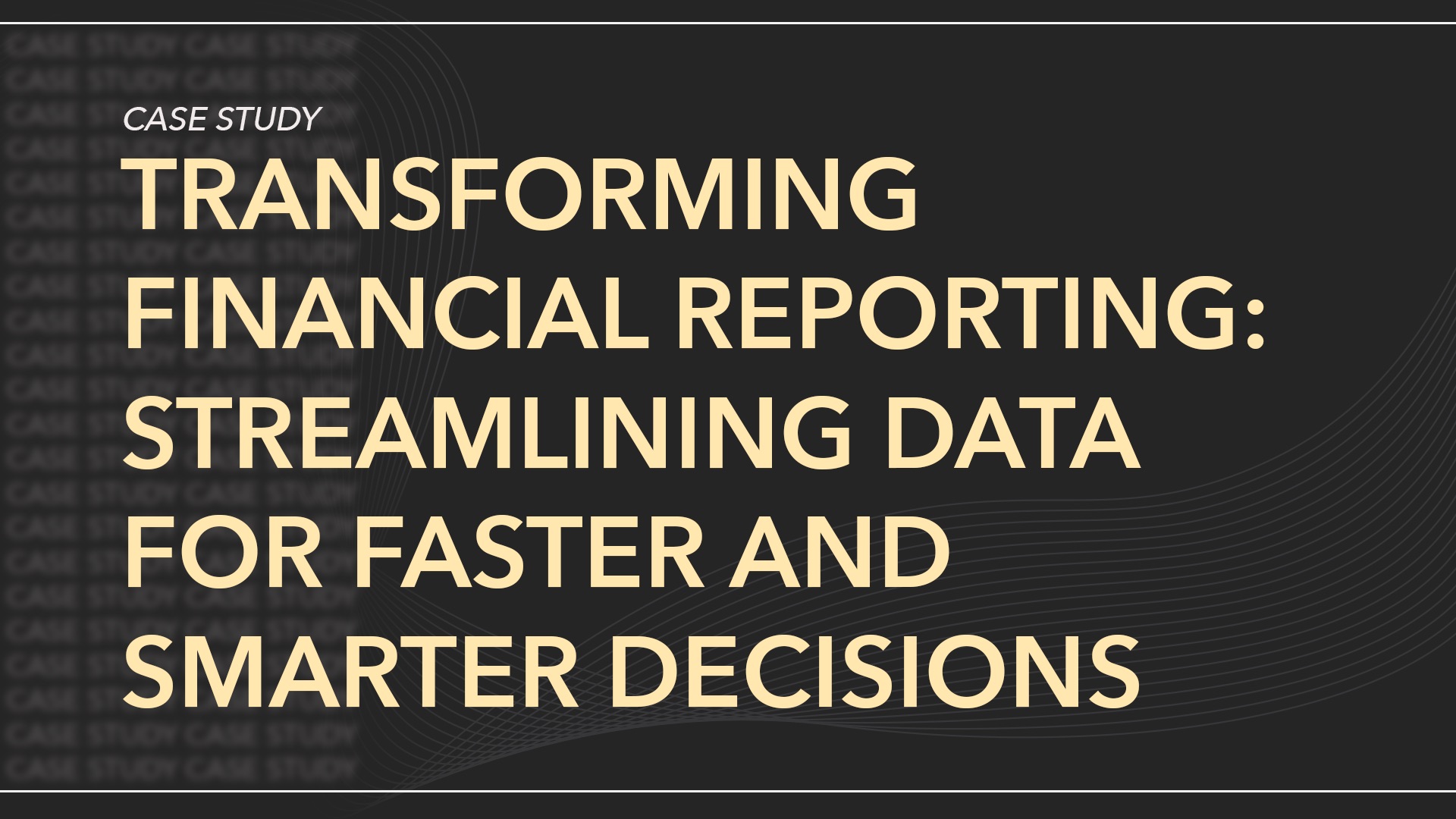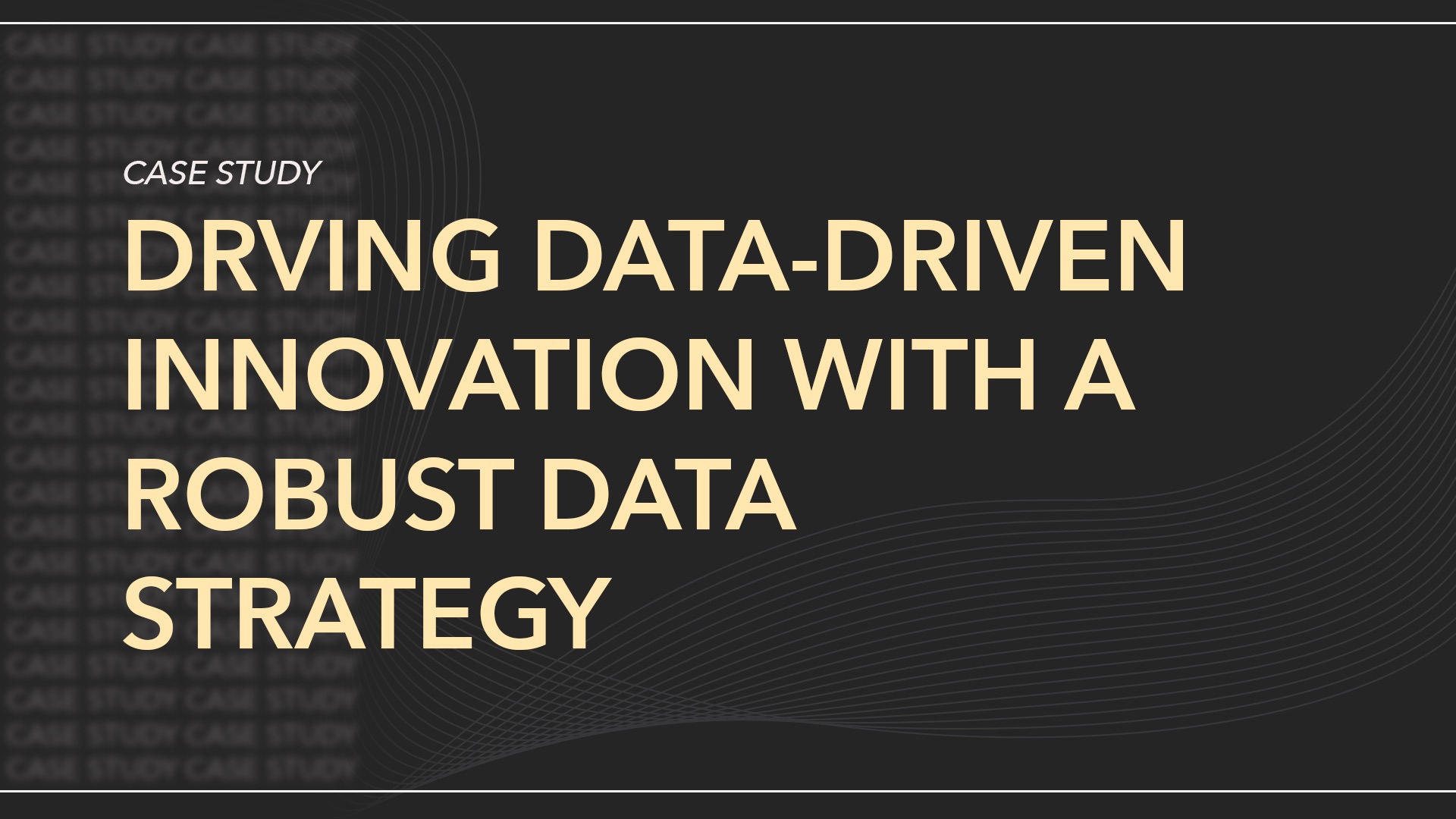Why Data Teams Must Lead Business Strategy
There’s a silent revolution happening in many organisations – one that will define whether they thrive or fall behind in 2025.
For decades, data teams sat on the periphery.
They were asked to report on performance, fix broken dashboards, and serve up stats when requested.
But the business world demands more than retrospective reporting.
In an economy shped by uncertainty, complexity, and disruption, data can no longer be confined to the back office.
To compete – and to innovate – data teams but be central to the conversations about where the business is heading – not just where it has been.
The Evolving Role of Data Teams
Historically, the remit of data teams was narrow: extract, clean, visualise.
The product was a report or dashboard handed off to business leaders to (hopefully) make the right decisions.
But in 2025, that model no longer delivers the value or agility that businesses need.
We’re now seeing a transformation in how modern data teams operate:
- From support function to value creators – shifting from reactive to proactive work.
- From siloed experts to embedded partners – working alongside commercial, operational, and product teams.
- From insight generators to strategic enablers – helping shape the decisions that drive growth.
This is not simply a shift in tooling or structure – it’s a transformation in mindset.
Data is now viewed as a product, not a project.
And data professionals are becoming co-owners of business outcomes, not just report providers.
It’s no longer enough to ‘inform’ strategy. Data teams now have the mandate to shape it.
Why Data Talent Belongs at the Strategic Table
Too often, strategic decisions are made without the full picture.
Assumptions, intuition, and legacy thinking creep into the boardroom – not because of malice, but because data voices weren’t in the room early enough.
Thats a missed opportunity.
Because when data professionals are included from the outset, they bring:
- A full-spectrum view across customers, operations finance, and product.
- Evidence-based thinking that reduces bias and rigor.
- Scenario modelling that helps forecast outcomes, not just track them.
- Systems-level insight that connects dots others don’t see.
And most importantly, they ask better questions.
We’ve seen firsthand how this changes the direction of major initiatives.
From whether to enter a new market, to which customer segments to prioritise, to how to price a product – strategic choices are simply stronger when grounded in data.
But this isn’t just about inviting data leaders into meetings. It’s about empowering them to contribute, challenge, and co-create strategy.
Real-World Examples of Data-Led Innovation
Across sectors, data teams are becoming the unexpected drivers of innovation and strategic clarity.
Here are just a few examples:
Food Manufacuring – Transforming Financial Reporting
Our client faced challenges in consolidating financial and sales data across multiple business entities.
We were brought in to design and implement a centralised data solution that would streamline reporting, improve data accuracy, and establish a self-service reporting framework.
Want more infromation about how we transformed out clients’ financial reporting?
Read the case study.

Financial Services – Building a Robust Data Strategy
Our client needed a comprehensive data strategy, governance framework, and innovation solutions to empower their teams with data-driven decision making.
Is building an innovative data strategy in your 2025 plan? Learn more about how we helped our client.
Read the case study.

Skills and Behaviours That Matter in 2024
For data teams to play this elevated role, technical ability alone isn’t enough.
The most valuable data professional in 2025 are those who can:
- Translate complexity into clarity – making insights accessible to non-technical audiences.
- Build trust with stakeholders – showing commercial empathy and reliability.
- Act like product owners – treating data solutions as long-term assets
- Thinking like strategists – understand the ‘why’ behind the business direction
- Collaborate across boundaries – engage with sales, operations, marketing, and more.
Organisations must now invest in upskilling and culture change to enable these capabilities. Without this shift even, even the best tools and platforms will under-deliver.
If you don’t have the capacity for all of this within your organisation. You could get some external help.
Check out this blog post to guide your decisions.

What This Means for Data Leaders and Business Executives
If you lead a data team, this is your moment to lean in.
Strop waiting for permission to join the conversation. (Just send your exec’s this blog post, it’ll do the hard work for you!)
Show your value by aligning with the business’ most urgent priorities – frame your work in terms of impact, not just output.
If you’re a business or technology executive, ask yourself:
- Are your data teams seen as strategic partners – or service desks?
- Do they have content on your long-term goals and access to decision-makers?
- Are you investing in the skills they need to step up?
Because the truth is simple: you won’t succeed in digital transformation, AI adoption, or customer experience without your data teams leading from the front.
Conclusion: From Reporting to Reimaging the Business
The gap between strategy and data is narrowing – and that’s a good thing!
In 2025, the most successful organisations will be those where data is not an afterthought, but a strategic compass.
This means building data teams with the confidence, skills, and mandate to lead.
It means creating space in the boardroom for evidence, experimentation, and curiosity.
And it means recognising that the future isn’t just data-driven: it’s data-led.
Download our 2025 Guide to Data Innovation
Discover how forward-thinking organisations are embedding data into business strategy – and how your teams can lead the way.

